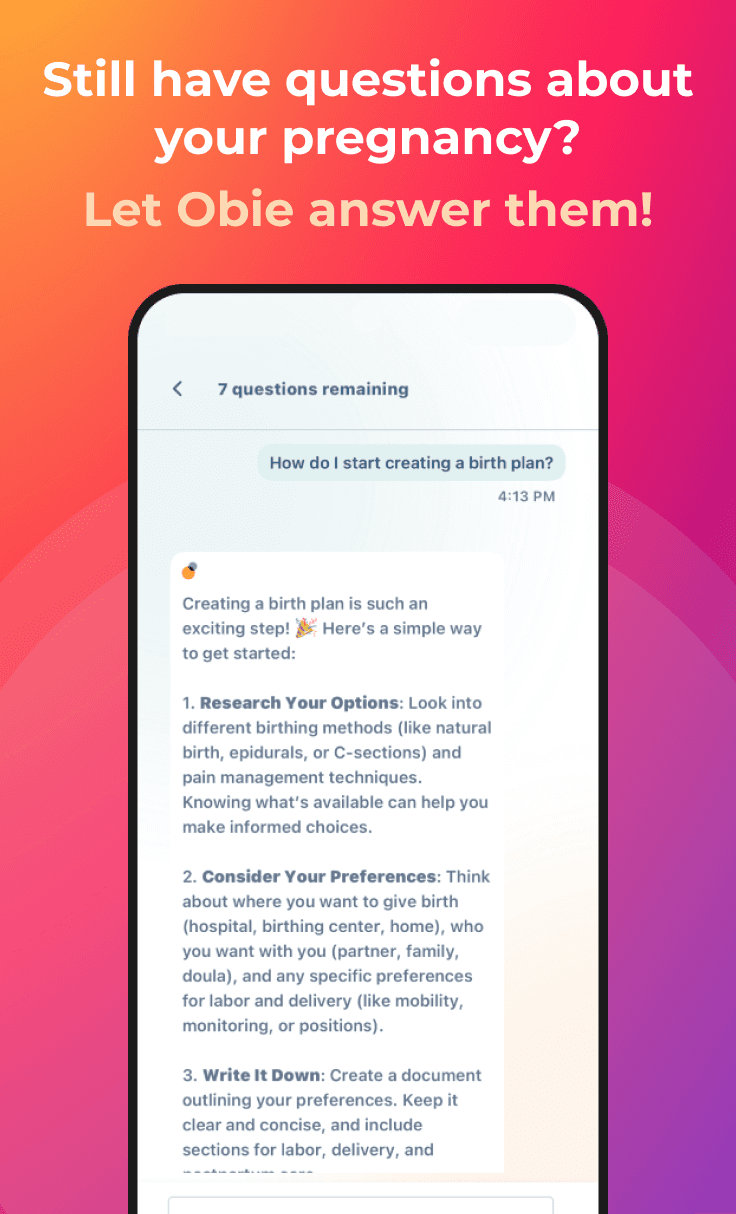Constipation Remedies During Pregnancy
Food and Nutrition
Obie Editorial Team
By: Rachel Neifeld, RD, CDN
As many as half of pregnant women get constipated at some point during their pregnancy. Constipation can be due to a variety of factors including an increase in the production of the hormone progesterone which slows the movement of food through the digestive tract, along with the pressure of the baby on the rectum, as well as iron supplements which can worsen constipation. To help avoid this discomfort, the key nutrients to increase in your diet are water and fiber.
Water allows nutrients and waste products to circulate within and out of the body, aids in digestion, and helps form amniotic fluid around the baby. Aim to drink six to eight 8-oz cups a day even when you’re not thirsty. Try carrying a water bottle around with you and add some lemon juice, ginger, or a splash of juice to make it more appealing.
Fiber is an indigestible carbohydrate found mostly in fruits, vegetables, whole grains, nuts, and seeds. Not only does fiber help with constipation, but can lower your risk of diabetes and heart disease as well. You should get about 25 grams of fiber a day. This amount of fiber can be found by including the recommended amount of fruits, vegetables, and whole grains in your diet. A good rule of thumb when it comes to grains such as bread and cereal is to look for at least 3 grams of fiber on the nutrition facts panel, as well as the word “whole” in one of the first three ingredients.
Here’s what about 25 grams of fiber look like:
- 1 whole wheat English muffin (5 grams)
- ½ a grapefruit (1 gram)
- 1 apple (3 grams)
- 1 serving multigrain pretzels (3 grams)
- 4 ounces baby carrots (2 grams)
- 1 cup cooked kale (2.6 grams)
- ¾ cup whole wheat penne pasta (5 grams)
- 1 cup roasted yams (5.3 grams)
Some great sources of fiber are raspberries, apples, bananas, whole wheat pasta, split peas, and lentils. If you don’t usually eat a lot of fiber it may be a good idea to introduce more fiber-containing foods slowly as you may experience gas and bloating if you are not used to eating 25 grams a day.
Also be sure to focus on both adequate fiber intake and hydration as it takes both components to help alleviate constipation. In fact, because fiber pulls fluids into the intestines, if you increase fiber in your diet without increasing fluids as well, you could make constipation worse.
Try this high fiber breakfast idea to start your day off with 12.2 grams of fiber (nearly half your daily allowance!)
Combine the following and enjoy:
- 1 container of yogurt
- 1/3 cup high-fiber cereal (more than 6 grams of fiber)
- 1 tablespoon ground flaxseeds
- 5 large, diced strawberries
More on constipation from the National Digestive Diseases Information Clearinghouse









